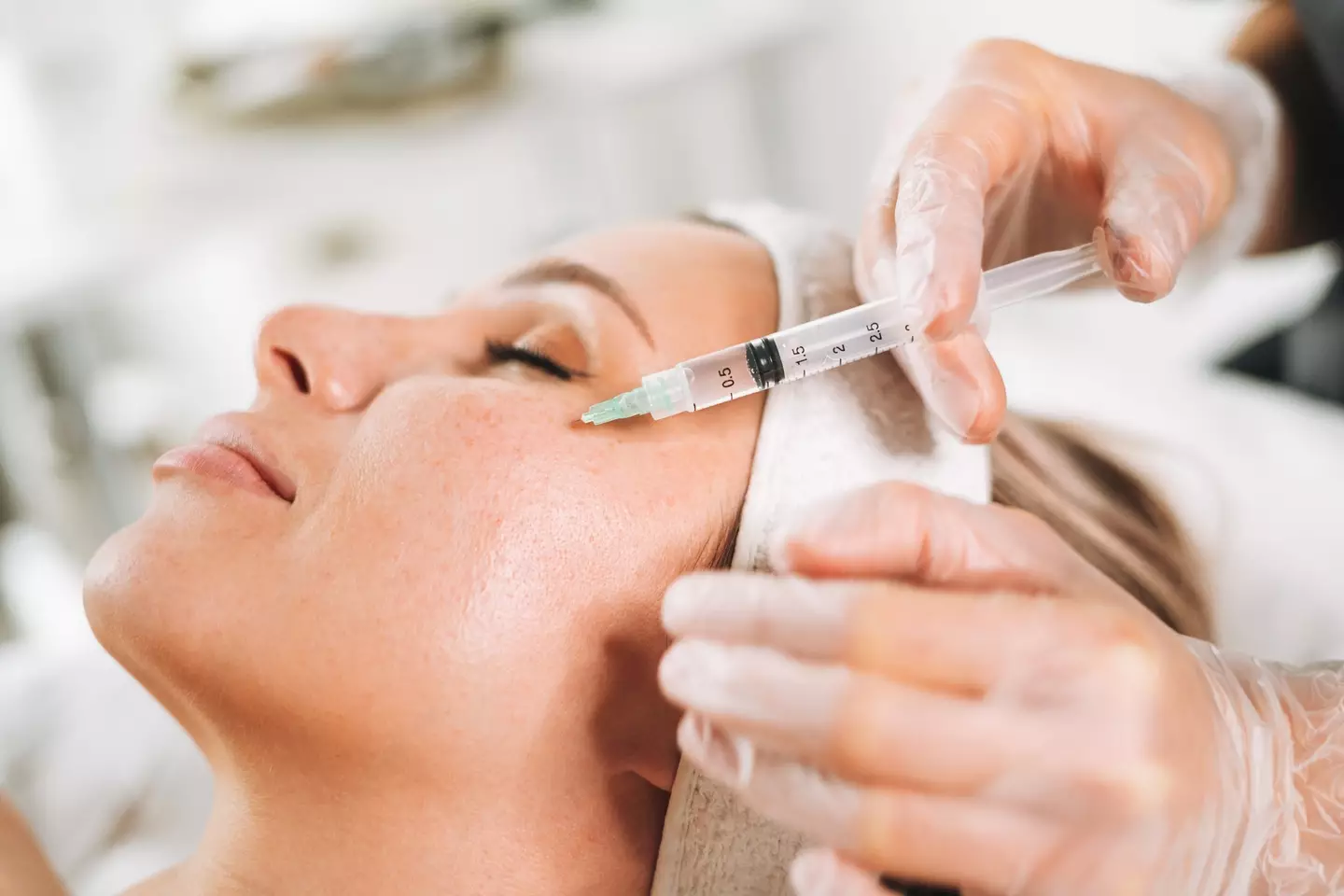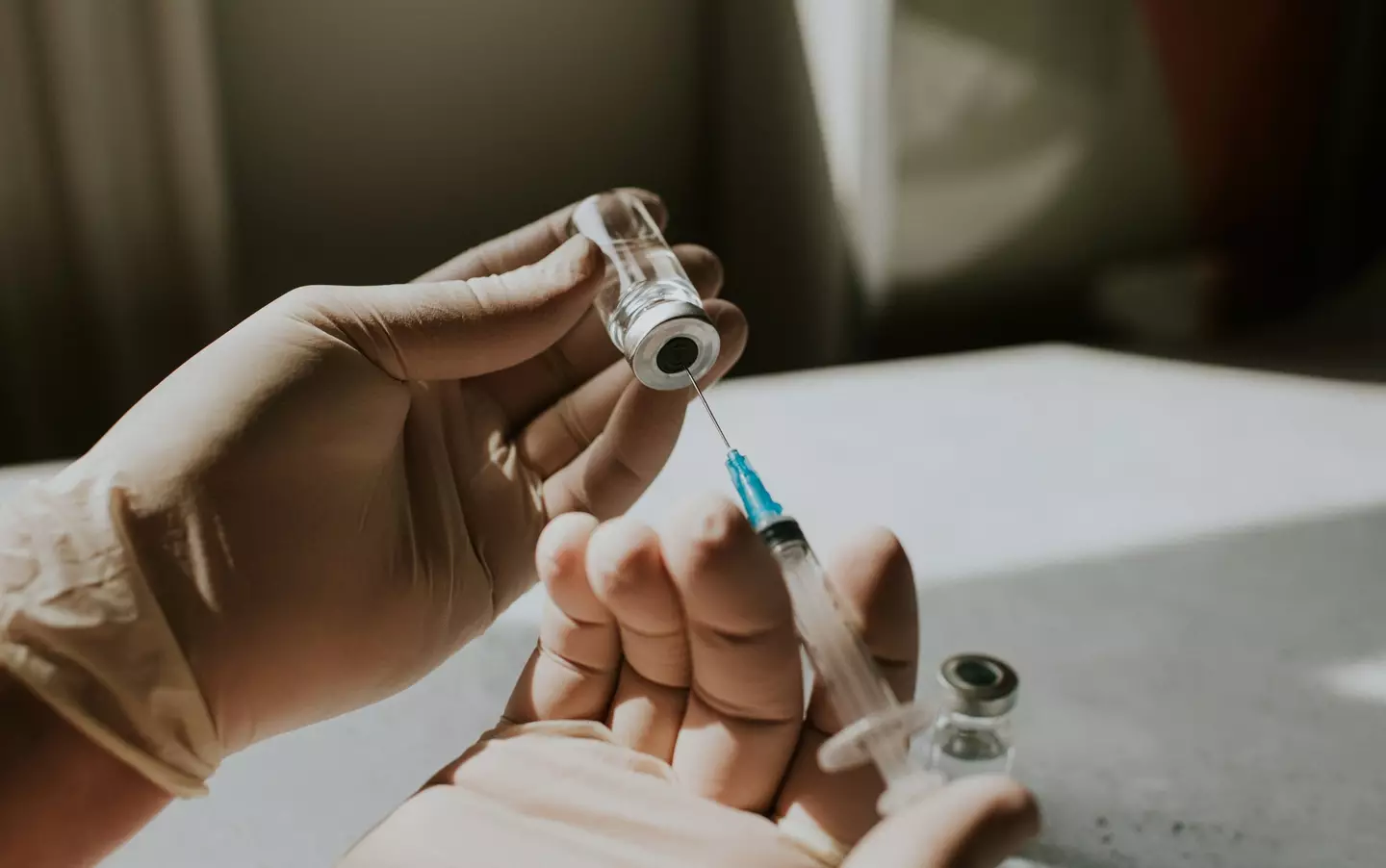
Experts have issued a warning over a rising 'DIY Botox' trend after thousands of people started posting about the treatments online.
A growing trend of self-administering cosmetic injections, like Botox, on social media has been concerning medical professionals.
One of the medications, known as Innotox, has seen a particular demand. Referred to as 'Korean botox', Innotox contains the toxin, type A botulinum, which blocks nerve signals in the muscles responsible for facial movement.
In a bid to save money, however, many people have been ordering Innotox online, which are reportedly being readily purchased through third-party stores.
Advert
However, it has not been approved by the Food and Drug Administration (FDA) for any use in the US, and health professionals have warned against it, as well as self-injecting any chemical product into the body due to the risk of facial paralysis, infection and other complications.

Some of the risks include allergic reactions, drooping eyelids, an uneven facial appearance, or accidentally creating a 'frozen' look. Hitting a blood vessel or a nerve is also a concern, which could cause numbness, tingling, or muscle weakness.
Aenone Harper-Machin, a consultant plastic surgeon and spokesperson for the British Association of Plastic, Reconstructive and Aesthetic Surgeons (BAPRAS), told The Guardian: "People could be giving themselves eyelid droops and all sorts of weird asymmetries by injecting it in the wrong place, too deeply, too superficially. You can inject it into your blood vessel and give yourself botulism."
According to the Cleveland Clinic, botulism is a rare condition where a toxin, produced by Clostridium botulinum bacteria, attacks the nervous system, with the bacteria being a key ingredient in Botox.
Meanwhile, New York cosmetic dermatologist Dr Michele Green told The Daily Mail that while it might be 'a cheaper alternative to a regulated neuromodulator', with the American Society of Plastic Surgeons estimating the average cost of Botox administration being around $400, its 'drawbacks significantly outweigh the benefits'.

Dr Mo Akhavani, co-founder of The Plastic Surgery Group, also issued a warning about the potentially deadly consequences, adding: "There is a serious risk of an allergic reaction, which would cause an anaphylactic shock, and when this happens at home, you will not have the response kit needed, which means it could be deadly."
There are also concerns that, due to the nature of buying the medication online, there is a higher risk of ending up with a fake due to a lack of regulation.
Dr Michelle Henry, a board-certified dermatologist, told TODAY.com that she's seen the horrific effects of 'unregulated aesthetic products', adding that she's seen 'patients come in with self-injected filler that they've gotten online ... and ended up with infections and bumps'.
Medytox, the company which manufactures Innotox, told TODAY.com that it 'only sells prescription products to authorized medical providers and medical distribution companies' and that they were 'unaware that some of the product is being offered online in unapproved countries or available to consumers'.
They continued: "Medytox certainly does not endorse the self-injection of botulinum toxins by consumers."
The company added that it 'was not previously aware' of people purchasing their product through third-party sellers, and that they were planning to 'investigate this unauthorized activity. ... Only medical providers in countries that have approved Medytox products should be using our brands'.
UNILAD has contacted Medytox for additional comment.
